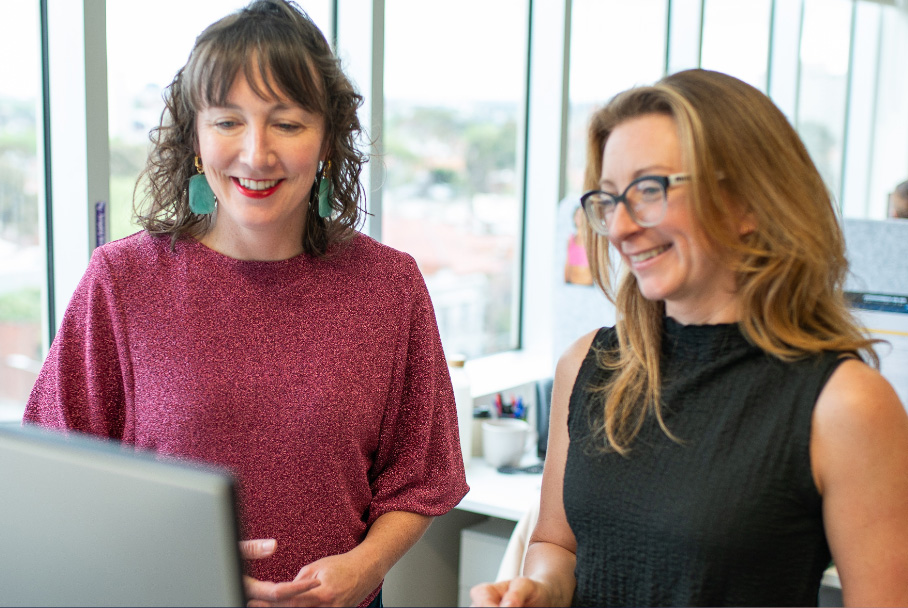
Every year, hundreds of Australian children begin cancer treatment with their families bracing for the double-edged sword of modern medicine. The chemotherapy, bone marrow transplants and radiation therapy that could save their child’s life often come with devastating side effects – some mild, like hair loss and nausea, others severe enough to cause life-threatening complications.
While childhood cancer cure rates have reached an impressive 85%, most children are treated with drugs originally developed for adults, and the journey to recovery remains fraught with uncertainty about how each child’s body will respond to treatment.
But what if doctors could predict exactly how each child’s body would respond to treatment before the first dose was given?
This vision is becoming reality through a pioneering genetics research program led by A/Prof Rachel Conyers at the Murdoch Children’s Research Institute (MCRI). With $1.76 million in funding from the Children’s Cancer Foundation and State Government distributed via Children’s Cancer CoLab, the Victorian Paediatric Oncology Network for Drug Safety aims to improve the safety and effectiveness of childhood cancer treatments.
A/Prof Conyers, a paediatric oncologist and clinician scientist at MCRI, explained that pharmacogenomics – using genetic information to predict drug responses – can help to reduce the side effects caused by cancer treatments.

Pharmacogenomics is like having a personalised instruction manual for each child’s body, telling doctors which medications will work best, and which doses will be safest. This information is crucial because children process medications differently from adults, yet most treatment guidelines are based on adult research.
What makes this research project unique is its foundation in patient experiences. The team interviewed 30 people with lived experience of childhood cancer, letting their voices guide the program’s direction.
These conversations identified clear research priorities, leading to five interconnected initiatives that will harness the power of pharmacogenomics to improve outcomes for childhood cancer patients.
1. Better real-time tracking of side effects
By monitoring reactions as they happen and analysing each child’s genetic makeup, the MCRI team aim to identify which treatments cause specific side effects. This could lead to more personalised and safer cancer care for young patients.
2. Understanding how children’s bodies handle different treatments
The team is conducting Australia’s first comprehensive clinical study into how children process targeted cancer medicines, combining drug level monitoring, genetic testing, and detailed side effect tracking. The results could help doctors predict which children need lower doses or different medications, preventing serious complications before they occur.
3. Learning how genetics affect responses to targeted therapies
In a world-first clinical study, the team will examine cases where children’s reactions to medications don’t match what their genetics would predict. These puzzling cases could unlock new insights into personalised medicine.
4. Building Victorian capacity for safer bone marrow transplants
Victorian children needing bone marrow transplants currently have their blood samples sent interstate to monitor levels of Busulfan, a key chemotherapy drug used in the procedure. The MCRI team is exploring whether Victoria could establish its own Busulfan monitoring program, allowing doctors to track drug levels and adjust doses in real-time. This local approach would reduce treatment complications, cut costs, and eliminate delays caused by sending samples interstate, potentially improving outcomes for young patients undergoing these life-saving procedures.
5. Improving healthcare education
In addition, an extensive education program will train doctors and nurses to confidently use genetic information when prescribing medicines, closing the knowledge gap that prevents widespread adoption of personalised treatment approaches.
Children’s Cancer CoLab CEO, Dr Udani Reets, said for families facing childhood cancer, this research represents hope for a future where treatments are safer and more effective.
Due to each child’s genetic makeup, some treatments simply do not work as intended or are metabolised differently, which can lead to devastating outcomes – a fact we are determined to change. This project will put world-class Victorian research at the forefront of global efforts to make childhood cancer treatments more personalised and less toxic on developing bodies.
The project, which is part of Children’s Cancer CoLab’s Safer Therapies Impact Program, is supported by the Children’s Cancer Foundation, and runs until July 2027.
Children’s Cancer Foundation CEO, Margaret Fitzherbert, said supporting safer therapy research through Children’s Cancer CoLab was a priority for the Foundation.
Children with cancer currently receive the same aggressive treatments as adults. As survival rates climb, the next frontier is ensuring children with cancer can undergo treatments free from devastating side effects.
The Children’s Cancer Foundation is committed to raising $10 million over the next five years to fund the critical work of Children’s Cancer CoLab. Learn more about our joint vision to ensure children with cancer survive and thrive here.
Grant Awarded: $1.76 million
Project Timeline: August 2025 – July 2027
Impact Programs: Safer Therapies
Scientific Review: Children’s Cancer CoLab Scientific Advisory Committee
Lead Institution: Murdoch Children’s Research Institute
Collaborating Institutions: Peter MacCallum Cancer Centre, Monash Children’s Hospital, Princess Máxima Center for Pediatric Oncology and Royal Melbourne Hospital
Lead Researcher: A/Prof Rachel Conyers
Unlocking genetic insights for safer childhood cancer treatments© 2025 by Children’s Cancer CoLab adapted for Children’s Cancer Foundation. Licensed under CC BY-NC 4.0. Changes were made to the original.